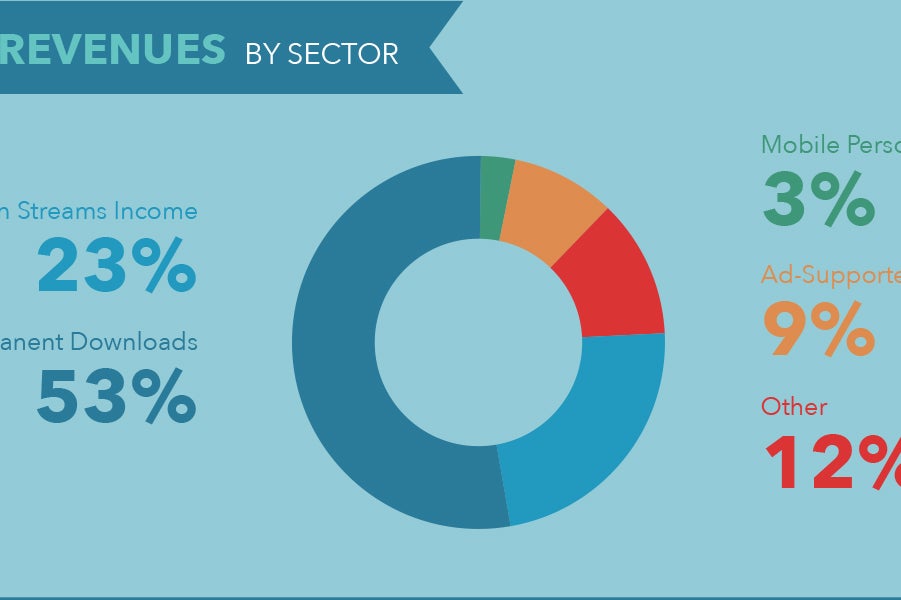
The market for recorded music has undergone at least three major reinventions since the dawn of the Internet. Most recently, stable and ubiquitous internet connectivity has led to the success of applications like Pandora, Spotify, and Rdio, which allow users to access entire music catalogs online. In 2014 alone, at least 164 billion tracks were played across all streaming services, according to Nielsen.
Yet a recent study from the Rethink Music Initiative of Berklee College of Music’s Institute for Creative Entrepreneurship (BerkleeICE) showed that 20 to 50 percent of music revenues might never make it to their rightful owners. In some cases artists might get 20% or less of the revenue coming in from streaming services.
In this podcast (part of the Berkman Center for Internet and Society’s ‘Radio Berkman’ series) hosts Elizabeth Gillis and Daniel Dennis Jones delve into the payment structure of streaming music services, citing the Rethink Music report, which looks into how streaming services pay artists and songwriters, and proposes solutions to improve licensing, revenue transparency, and cash flow for musicians in a multi-billion dollar global music industry.
Read/download the Fair Music report at the Rethink Music website;
Read an op-ed by musician David Byrne in The New York Times;
Read an interview with writer and musician Damon Krukowski, an incoming Berkman Center fellow;
Find a transcript of this episode here.
Hosted by the Berkman Center for Internet and Society at Harvard University, Radio Berkman is a weekly podcast focused on interviews, conversations, and stories on the intersection of web, society and technology. Recent podcasts include “How Block Chain will change the world,” “Can you copyright a joke,” and “Reddit – Community? or Business?”
See Radio Berkman podcasts here.